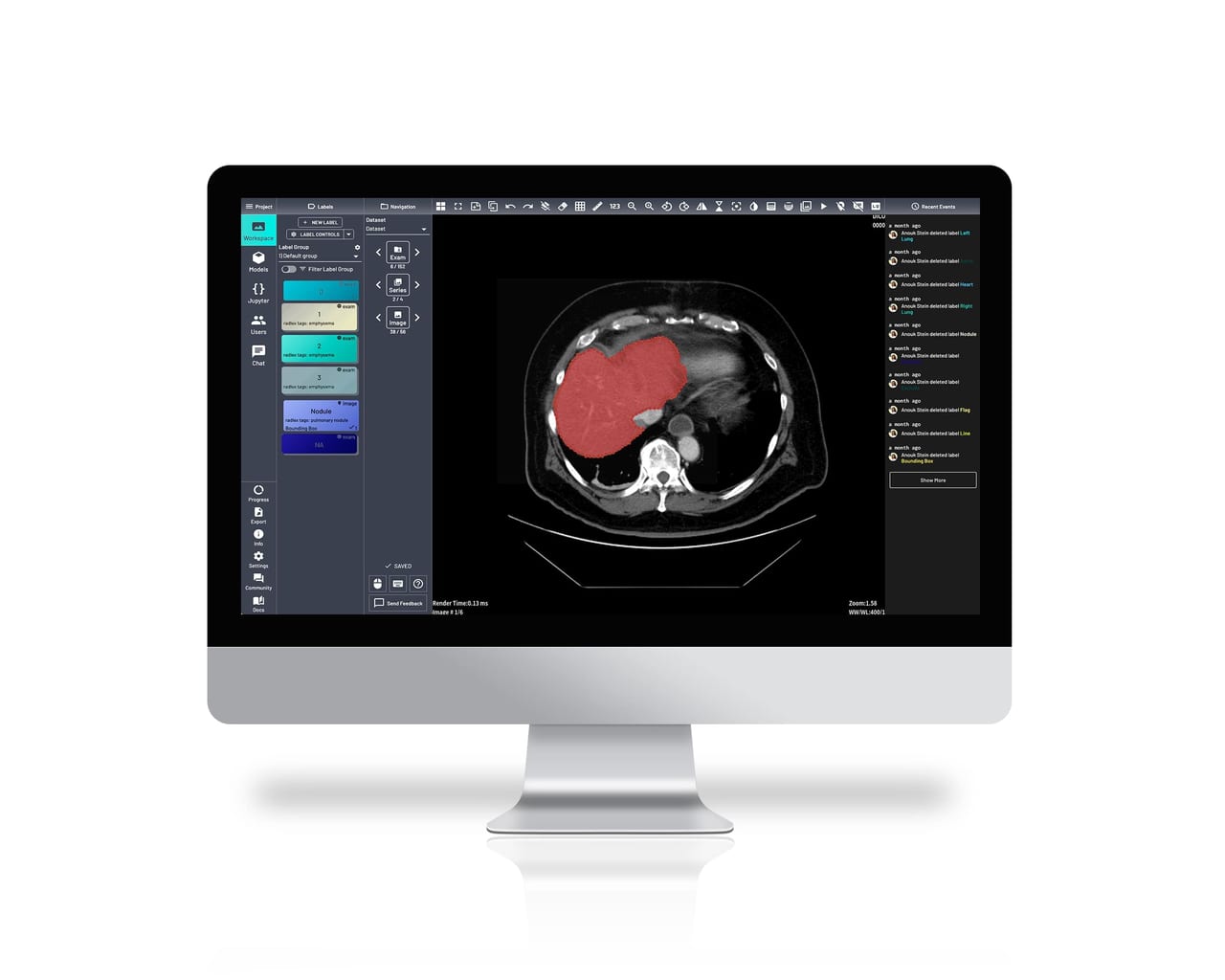Technology is changing every aspect of our lives to the better, and the healthcare industry is not the exception. A prediction has shown that technology-driven innovation holds the potential to improve the understanding of patients, enable the delivery of more convenient and personalized care, as a result, creating an annual value of between $350 billion to $410 billion by 2025. Therefore, many healthcare institutions are starting to look for a Medical Software Provider to adopt the advanced technology to their operations, which brings about benefits not only to their physicians but also to the patients as well. To know more details about how MedTech is changing the healthcare sector, don’t skip this blog!
1. Speed And Precision With AI Integration
It is no exaggeration to say that AI is a powerful tool that is reshaping Digital Healthcare Technology. Forbes even estimates that AI, which is replacing conventional labor-intensive and time-consuming processes, is expected to grow at a CAGR of 50.2% by 2025. With the ability to mine medical records, AI algorithms can carry out treatment plans, finish tasks quicker than any current doctor, and diagnose symptoms as well as diseases accurately.
For instance, some Healthcare Institutions are finding Tech Vendors to build AI-powered autonomous monitoring systems, which utilize a variety of sensors to offer monitoring capabilities. These platforms are even integrated with the APIs to share with the third-party systems, therefore, providing a comprehensive and best solution for treatment. Or a Medical AI Web Platform (a project of SotaTek), which uses NodeJS, Java, C++, Orthanc, and DCMTK technology stack, is able to collect, label, train, and test medical images from a wide range of hospitals. After the tracking process, it analyzes the images and automatically detects different kinds of diseases such as Brain Aneurysm, Spine Fracture, and Dental Cyst. Moreover, AI Technology can also mimic the regular examination steps of a doctor but result in a far faster diagnosis, for example, from 30 minutes down to 5 minutes, along with increased accuracy.

Let's take a look at Medical AI Web Platform, a MedTech project of SotaTek.
2. Personalized Treatment With Wearable MedTech
While the wearable tech industry is still relatively new, its implications are seemingly limitless. Such devices are revolutionizing the role of healthcare providers, personal well-being, and workplace productivity. Thanks to the apps connecting through IoT technology, this MedTech is improving the overall lifestyles of millions. Such wearable devices can track and collect signals, data in real-time, identify the abnormal symptoms or diseases, which then utilizes Cloud AI to send to the healthcare providers. Therefore, they can help you and take appropriate measures at the right time. Or else, you can find it easy to know more about your heart rate and other related health information without having to go to the hospital. Besides, these wearables and apps also overcome the challenges of data acquisition and analysis, thanks to the AI’s ability to analyze massive data through continuous monitoring.
3. Solutions For Surgeries And Emergency Responses
Integrating VR into the Healthcare Industry is changing the lives of both doctors and patients. VR technology could help physicians to utilize the “golden hour”, the time when effective medical intervention can mean the difference between life and death. A 5G-powered remote emergency channel linking to a command center brings the view to the doctors with VR glasses as if they were inside the ambulance. Doctors can receive data on a patient’s vital signs in real-time, such as the patient's ultrasound image, oxygen saturation, blood pressure, heart rate, and temperature. Besides, when following the situations in the ambulance, doctors can also guide the assistants there, and patients can be admitted to the hospital with their details and condition known.
Another advantage of VR implementation also lies in the chances it gives to doctors to practice the surgeries. When equipped with VR Technology, surgeons can find out some problems likely arising in surgery and try solving them in advance to have the best surgery results for their patients. By utilizing this feature, the skills of doctors also enhance and the precision and accuracy, as a result, improve as well. According to a Harvard study, VR training boosts a surgeon's performance by up to 230%.
4. Telehealth
The COVID-19 pandemic has caused businesses and organizations of many industries to embrace a distributed workforce model, and healthcare included. Besides, as a worry about the pandemic, many patients are hesitant to reach out to the hospital, making their diseases more serious day by day. Therefore, it is essential for Healthcare Providers to look for new ways to interact with non-emergency patients. Telehealth, or Virtual Healthcare, has existed to improve the efficiency of communications between clinics, physicians, and patients.

Telehealth improves the efficiency of communications between clinics, physicians and patients.
Thanks to this MedTech, doctors now find it easy to consult patients remotely, diagnose conditions, and even review X-rays and CT scans in high definition – often collaboratively with other experts in remote locations. In turn, patients also become more familiarized with remote healthcare services and telemedicine, with Ernest Young reporting that 54% of people having chronic diseases now accept remote healthcare. Not only in the efficiency and convenience for the patient experience, but Telehealth also leads to better and safer access, less wasted time, and cost reduction. It means that regardless of destinations, be it in far-flung or in rural areas, people can reach specialized doctors.
5. Data Storage With Cloud EHRs
Cloud EHRs, which stands for Cloud-based Electronic Health Records, is the system allowing storing and accessing information related to patients and treatments. These services would eliminate the huge number of hassle paper documentations. Instead, everything is centralized in a platform, meaning that every employee and doctor can access it. This cloud-based service also offers scalability, which is easy to expand and add new users. Finally, EHR systems allow healthcare IT departments to cut costs through limited maintenance fees and zero licensing and update costs.
6. Final Thoughts About MedTech
Previously, healthcare decision-makers seemed to be hesitant to take the leap toward a digital transformation. However, many indispensable advantages that Healthcare IT brings about have gradually changed their mind. It results in deeper patient engagement, eliminating data silos, which then drives a more modern and consistent patient experience.
If you are interested in initiatives in the medical field and looking for Software Outsourcing Partners to collaborate for a collective effort, feel free to leave us a message and we'll be happy to chat. We have experience collaborating with businesses of all sizes in the healthcare industry, be it small start-ups or big corporations. With the vision to make this field more consumer-driven and technology-enabled, SotaTek, a Top Software Agency in Vietnam, is confident to provide you with the best MedTech solutions strictly in accordance with the HIPAA compliance and other regulatory requirements.



